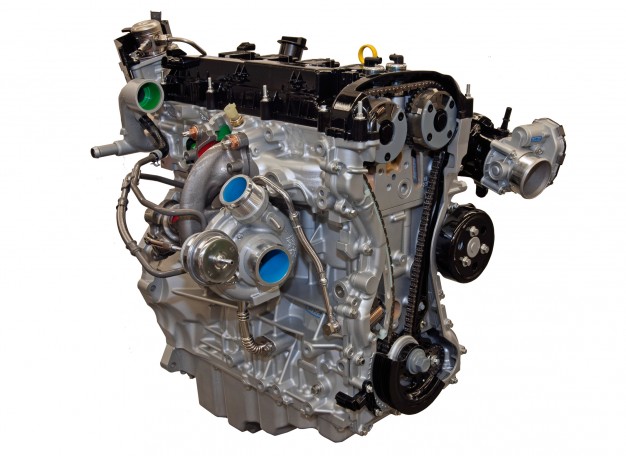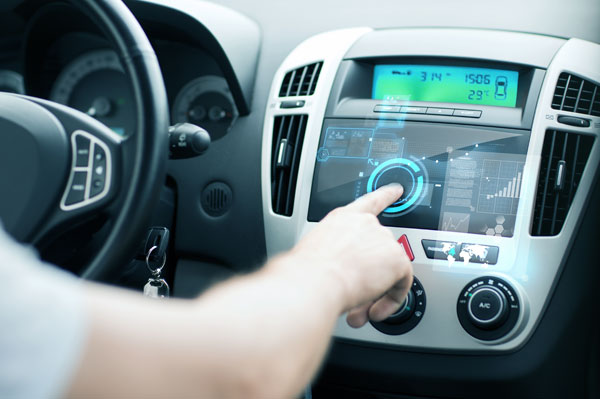Once, turbo-lag was seen as an inherent downside of turbocharging, and an inevitable compromise you had to face when choosing a turbo car.
Now, with the meteoric rise in popularity of the turbo – things are changing quickly.
In this post, we’re taking a look at turbo lag, explaining what it is, why it happens, and what manufacturers are doing to eliminate it in the near future.
What is turbo lag?
Turbo lag is the hesitation or slowed throttle response you experience when driving a turbocharged vehicle, before the turbocharger starts to kick in and provide extra power to your engine.
It’s caused by the time it takes for the pressure from the exhaust system to build to the required level needed to spin the turbine inside the turbo.
Once a turbo reaches the required speed (known as spooling up) it can then begin to and force more air and fuel into the engine.
What does turbo lag feel like?
If you put your foot down on the accelerator of a turbocharged vehicle, you may experience a noticeable gap before your car begins to accelerate quickly.
When the turbo kicks in, you’ll feel a significant jump in acceleration.
Is it really a big problem?
In a word, no!
At one time, turbo lag was very noticeable in the majority of turbocharged vehicles, and was cited as one of the main downsides of the turbo. However, today things are much different.
The advanced materials and designs of the turbochargers fitted to most modern engines mean that the lag is fairly minimal, to the point that the vast majority of drivers won’t even notice it.
What are the solutions?
Turbo lag is affected by a number of different factors, including turbo size relative to engine size, the state of tuning of the engine, the inertia of the turbo’s rotating group, turbine efficiency, intake plumbing losses, and exhaust backpressure.
Ever since turbochargers were first fitted to vehicle engines, manufacturers have been looking for ways to reduce, or eliminate turbo lag. Here’s how they’re doing it:
Lighter materials
One of the most effective ways that manufacturers are using to reduce lag is by using lighter materials. Advanced alloys are being developed that are both lighter and stronger than existing materials. This helps to reduce inertia and air resistance, meaning that the turbocharger can spool up more quickly, and lag is reduced.
Component design
Manufacturers are constantly looking for ways to develop and refine the design of their components to improve efficiency, responsiveness and performance. Improvements to the design of the turbine, compressor and bearings to reduce friction and inertia are also helping to reduce turbo lag.
Assisted turbocharging
Assisted turbocharging is a bit of an umbrella term – essentially, it focuses on providing more power to the turbo by the addition of external devices, be that electric motors, additional compressors or extra forced induction devices (like another turbocharger, or a supercharger.)
Currently, numerous different manufacturers are looking at electric turbocharging – check out our previous post on how it works here.
Multi-stage turbocharging
Other solutions to combat lag include the use of multi-stage turbocharging. Although larger turbochargers provide more boost, this comes at the expense of responsiveness – meaning that lag can be more of an issue.
Small turbochargers begin working at much lower engine speeds, which make them more responsive. Increasingly, manufacturers are looking towards multi-stage systems that utilise turbos of different sizes, to find the best of both worlds.
How AET can help
At AET, we’ve been at the forefront of turbocharging technology for over 40 years – and we’ve always got our ear to the ground when it comes to the latest developments in turbo tech.
If you’ve got a problem with your turbo, our experienced, friendly teams are here to help. Providing a full range of high quality and cost effective repairs, replacements and turbo sales, we’ll provide you with the right tailored advice, support and solutions to get you back on the road.
Get in touch today on 01924 588 266, or email [email protected] for further information on any of our services.




2 comments
Comments are closed.